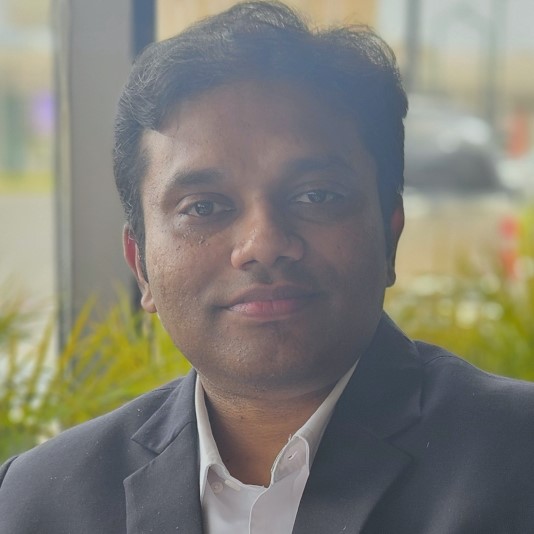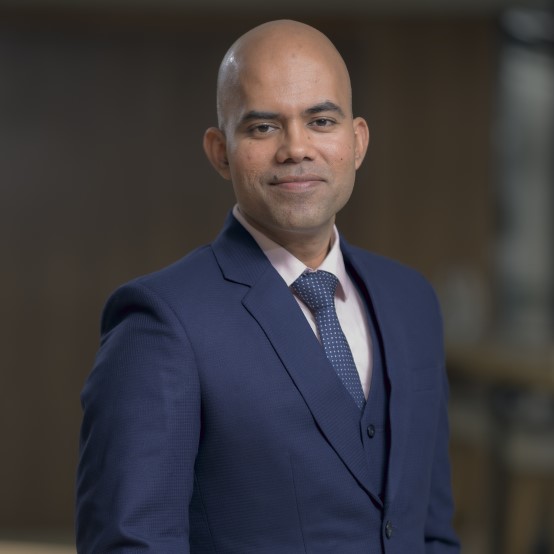How sustainability is embedded into our MBA programmes
When you study an MBA at Warwick Business School, you'll graduate equipped with the expertise to create an ethical and sustainable world, thanks to the integration of sustainability and social impact into your core modules, as well as the opportunity to specialise your MBA in Social and Environmental Sustainability.
Discover more about how sustainability is integrated into our MBA programme with insights from participants.
 Xiaofei Song - Full-time MBA
Xiaofei Song - Full-time MBA
Social and environmental sustainability is embedded extensively and intensively within my Full-time MBA course in multiple modules. Just taking two examples, for instance, a group assignment on this topic allowed team members to explore real industry practices through the lens of operation management.
It was equally interesting and thought-provoking learning about ethics and sustainability in leadership in terms of how to do the right thing, especially when this is an ethical dilemma.
On top of that, a real highlight for me was the opportunity to study an international elective module on Conscious Capitalism in Portugal for a week, which was a truly inspiring experience. I gained a holistic understanding of where we are, the contradictions, paradoxes, and some useful frameworks and tools, alongside fun and inspiring company visits.
As well as understanding from a mindset level, useful tools such as the ESG Industry Materiality Map and ESG ratings for individual companies were delivered and touched upon during the learning journey. For me, those tools are like an anchor to help make sense of what sustainability really means from a practical level, and how it could potentially be used to maximise ESG opportunities.
Understanding the tangible and non-tangible parts of social and environmental sustainability has been planted as a seed for me now. I believe my future career will benefit when the mindsets, frameworks, and tools learned in the course meet a real business case when sustainability could play a part.
As someone working in drug regulatory affairs, I see myself potentially playing a role in translating sustainability into strategy or the other way around, even though specific pharmaceutical sustainability regulations have not been put into place yet. Nevertheless, I really look forward to seeing how sustainability will evolve in the near future.
 Tobia Topf - Executive MBA
Tobia Topf - Executive MBA
The sheer breadth of sustainability initially overwhelmed me. It seemed like an impenetrable jungle, dense with information and ideas. I needed guidance, someone to break it down into digestible pieces. Fortunately, my MBA programme at WBS offered precisely that opportunity.
Taking elective modules in Business & Sustainability and Creating Sustainable Organisations proved transformative. These modules demystified sustainability, providing concrete frameworks for implementing change. From learning about sustainable strategies to visiting eco-conscious companies in Vancouver and meeting inspiring individuals like Chief Ian Campbell (Xalek), the experiences were eye-opening. Each lecture and campus visit illuminated new facets of sustainability, reinforcing its relevance across diverse industries.
My immersion in sustainability culminates in my current dissertation on the decarbonisation of the dairy industry. As I delve deeper into my dissertation, I'm struck by the depth of knowledge I've acquired and the confidence I've gained in tackling pressing sustainability challenges. It's a testament to the effectiveness of a focused education and the power of determination.
Reflecting on my journey, I'm grateful for the opportunity to specialise my MBA in sustainability at WBS. The programme has provided not just knowledge but a sense of purpose—a conviction that meaningful change is both necessary and achievable. Moreover, it's heartening to witness how sustainability threads through every aspect of our curriculum, reinforcing its importance in shaping the future of business and society.
As I navigate the ever-evolving landscape of sustainability, I'm filled with optimism and determination. Armed with newfound insights and a network of like-minded individuals, I'm eager to contribute to a more sustainable future, one step at a time. For me, sustainability isn't just a specialisation—it's a lifelong commitment to making a positive impact on the world.
 Harish Parameswaran - Global Online MBA
Harish Parameswaran - Global Online MBA
Sustainability seems to be everywhere these days, but I confess my knowledge was limited until recently. Having worked in corporate policies and enterprise project management, I had only a vague understanding of its true scope. This changed when both my hometown in Kerala, India and my work base in the Middle East faced the devastating effects of climate change: historic flooding in Kerala in 2018 and unprecedented heatwaves in the Middle East.
These events, along with the realisation that corporate sustainability is going to have a potent impact in all career streams, made me choose Social and Environmental Sustainability as my Global Online MBA specialism, and it's been an eye-opening experience. I've not only unlearned misconceptions, but also recognised sustainability as a powerful tool for shaping organisational strategy. It's about much more than environmentalism—it's about creating a better world through the UN Sustainable Development Goals (SDGs), which encompass social, economic, and environmental dimensions.
The programme equips you with comprehensive knowledge to guide an organisation's transition to sustainability, using the SDGs as a framework. We've learned about tools like the SASB Materiality Matrix, which helps companies assess their impact and prioritise actions.
One standout module was Managing Sustainable Energy Transitions. We used the En-roads simulator to model the effects of different energy decisions on our future, gaining a deeper understanding of the challenges involved in reaching the Paris Agreement goals. We also explored case studies on energy transition strategies, geopolitical issues, and the role of critical materials in renewable energy, plus we were inspired by Jason Ash from Rolls Royce Aviation, who shared their long-term energy transition programme.
Overall, this specialism is empowering me to lead or manage an organisation's sustainable transformation, while navigating the inherent complexities and challenges.
 Rohit Punia - Full-time MBA
Rohit Punia - Full-time MBA
At WBS, social and environmental sustainability is an integral part of the MBA curriculum. Every core academic module is required to have approximately 20% of its course content covering the social and environmental sustainability aspect in line with their discipline. This provides us the opportunity to look at sustainable practices from multiple perspectives and to grasp in-depth understanding.
Furthermore, WBS provides the option to pursue the Social and Environmental Sustainability specialism and the international elective module at Nova Business School is focused on Conscious Capitalism. This comprehensive approach ensures that social and environmental sustainability is not just an add-on but a fundamental aspect of our learning experience.
My key takeaways from social and environmental sustainability studies at WBS are multifaceted. Firstly, I have learned that sustainability is a strategic imperative, not just a compliance issue. Secondly, innovation is at the heart of sustainability. The third key lesson is the importance of stakeholder engagement – understanding and balancing the needs and expectations of various stakeholders. Lastly, the interconnectedness of global challenges has become apparent; addressing issues like climate change, social inequality, and resource scarcity requires a holistic and collaborative approach.
As I progress through the course, I am continually inspired by the potential of businesses to be a force for good. I am now equipped to identify and mitigate risks related to sustainability, drive innovation for sustainable products and services, and build strategies that align with the triple bottom line of sustainability. Moreover, my ability to communicate the importance of social and environmental sustainability to diverse stakeholders will help foster a culture of sustainability within any organisation I join.
For prospective students considering an MBA at WBS, the focus on social and environmental sustainability is not just an academic exercise but a real-world necessity that prepares you to lead with purpose and responsibility.
Discover more about our MBA programmes.




 X
X Facebook
Facebook LinkedIn
LinkedIn YouTube
YouTube Instagram
Instagram Tiktok
Tiktok